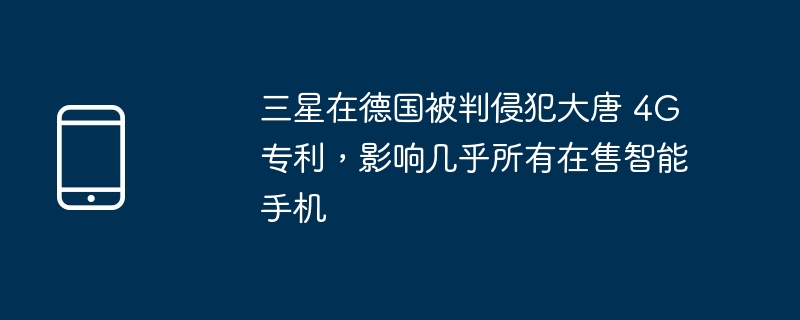
News on April 28, according to German media heise online, the Munich District Court in Germany issued a first-instance judgment earlier this month, finding that Samsung Electronics infringed the copyright of Datang in the mobile communication equipment it produced. Owned 4G standard essential patents. This lawsuit involves patented technology that allows mobile phones to seamlessly switch between different TDD cells to ensure continuous connectivity. Datang obtained the patent rights for this patent in Germany from the China Academy of Information and Communications Technology on August 20, 2021. The judgment shows that Samsung needs to pay fixed compensation for almost all smartphones sold in Germany since August 20, 2021 (because basically all support 4G networks); all related models currently circulating on the market also need to be destroyed. The judgment does not yet have full legal effect, and Datang currently has no option to temporarily enforce it on the premise of paying a deposit of at least 2.5 million euros. In the first-instance lawsuit, Samsung and Datang had a huge dispute over what is the FRAND (Note: fair, reasonable and non-discriminatory terms) principle in standard essential patent licensing. Samsung believed that Datang did not provide a proper licensing agreement in accordance with this principle and filed a defense, but the lawsuit ended in failure. In addition, Samsung filed an invalidity lawsuit against the patent related to the case during the trial, but the Munich District Court refused to suspend the infringement proceedings due to the invalidity lawsuit. A Samsung spokesperson said: "Samsung will thoroughly review the court decision and determine appropriate legal actions, including possible appeals. We plan to take steps based on the court decision to ensure that our customers and their user experience are not affected by the decision."
The above is the detailed content of Samsung was found guilty of infringing Datang's 4G patent in Germany, affecting almost all smartphones on sale. For more information, please follow other related articles on the PHP Chinese website!






